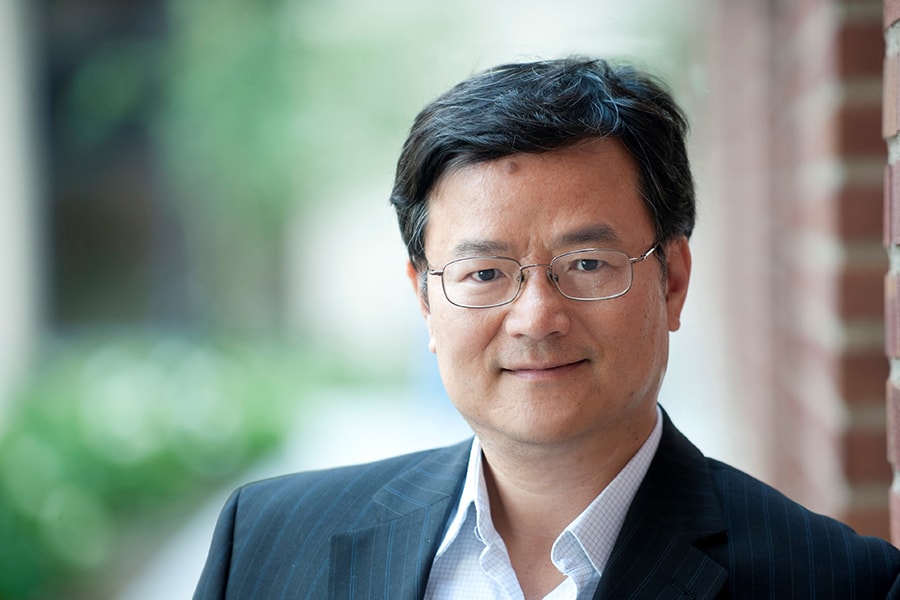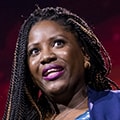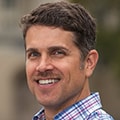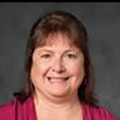
Personal Mention
Bin He, the Trustee Professor and head of the Biomedical Engineering Department, has received the William J. Morlock Award for his “significant contributions to bioelectrical technology and neuroengineering for innovative electromagnetic sensing, electromagnetic imaging and neural interfacing.” The Morlock Award is one of the highest honors bestowed by the IEEE Engineering in Medicine and Biology Society (EMBS), the world’s largest international society of biomedical engineers, with 11,000+ members in 97 countries around the world. The award is given every two years to an individual for his or her original contributions involving important applications of electronics techniques and concepts to solve biomedical problems. He is a pioneer and world leader in bioelectrical technology, who has helped to establish the field of neuroengineering. His contributions have had a significant impact on developing future neuroprotheses for disabled patients, locating the origins of lethal arrhythmias to treat cardiac rhythm disturbance, and detecting cancer at an early stage. Find out more.
 Elizabeth Wayne is joining the faculty this fall as an assistant professor of chemical engineering and biomedical engineering. Her current research focuses on drug delivery for cancer treatment, specifically the use of microphages to deliver therapeutic genes to solid tumors. Wayne received her bachelor’s degree in physics from the University of Pennsylvania before attending Cornell University, where she studied the role of immune cells in cancer progression and their potential as drug delivery carriers. She received her Ph.D. in biomedical engineering from Cornell in 2016, and joined the National Cancer Institute Cancer Nanotechnology Training Program as a postdoctoral fellow in the Eshelman School of Pharmacy at UNC-Chapel Hill. She holds a patent, titled “Method to functionalize cells in human blood, other fluids and tissues using nanoparticles.” Wayne has received a number of awards and recognitions as a speaker and advocate for the inclusion of women in STEM. In 2017, she was recognized as a TED Fellow for both her cancer nanotechnology research, and her podcast PhDivas, which works to amplify the voices of women in higher education by interviewing women who have or are pursuing doctorates. Find out more.
Elizabeth Wayne is joining the faculty this fall as an assistant professor of chemical engineering and biomedical engineering. Her current research focuses on drug delivery for cancer treatment, specifically the use of microphages to deliver therapeutic genes to solid tumors. Wayne received her bachelor’s degree in physics from the University of Pennsylvania before attending Cornell University, where she studied the role of immune cells in cancer progression and their potential as drug delivery carriers. She received her Ph.D. in biomedical engineering from Cornell in 2016, and joined the National Cancer Institute Cancer Nanotechnology Training Program as a postdoctoral fellow in the Eshelman School of Pharmacy at UNC-Chapel Hill. She holds a patent, titled “Method to functionalize cells in human blood, other fluids and tissues using nanoparticles.” Wayne has received a number of awards and recognitions as a speaker and advocate for the inclusion of women in STEM. In 2017, she was recognized as a TED Fellow for both her cancer nanotechnology research, and her podcast PhDivas, which works to amplify the voices of women in higher education by interviewing women who have or are pursuing doctorates. Find out more.
 Jason D’Antonio, director of the Health Professions Program and an assistant teaching professor in biological sciences, was appointed to the American Medical College Application Service (AMCAS) Advisory Committee. AMCAS is a centralized application processing service for students applying to allopathic medical schools in the United States and is coordinated by the Association of American Medical Colleges (AAMC). As a member of the committee, D’Antonio traveled to Washington, D.C., in early July to meet with medical school admissions counselors and AMCAS leadership to discuss improvements to the current application process and to assess the reception of the new Choose Your Medical School tool. The online tool was designed to enhance communication between applicants and schools and to help accelerate applicants’ decisions to commit to their chosen school. He will head to Phoenix in November to attend the AAMC Learn Serve Lead annual meeting to follow up on the goals and initiatives established in Washington, D.C.
Jason D’Antonio, director of the Health Professions Program and an assistant teaching professor in biological sciences, was appointed to the American Medical College Application Service (AMCAS) Advisory Committee. AMCAS is a centralized application processing service for students applying to allopathic medical schools in the United States and is coordinated by the Association of American Medical Colleges (AAMC). As a member of the committee, D’Antonio traveled to Washington, D.C., in early July to meet with medical school admissions counselors and AMCAS leadership to discuss improvements to the current application process and to assess the reception of the new Choose Your Medical School tool. The online tool was designed to enhance communication between applicants and schools and to help accelerate applicants’ decisions to commit to their chosen school. He will head to Phoenix in November to attend the AAMC Learn Serve Lead annual meeting to follow up on the goals and initiatives established in Washington, D.C.
 Lisa Kay Schweyer, program manager for the Traffic21 Institute and Mobility21, a National University Transportation Center, was awarded a President’s Award for Extraordinary Service by the Association for Commuter Transportation. The Association for Commuter Transportation mission is to “… create an efficient multimodal transportation system by empowering the people, places, and organizations working to advance TDM [transportation demand management] in order to improve the quality of life of commuters, enhance the livability of communities, and stimulate economic activity.” Schweyer has been actively involved in the association since 2003, served in state-wide chapter leadership roles and led the international Vanpool Council for two years.
Lisa Kay Schweyer, program manager for the Traffic21 Institute and Mobility21, a National University Transportation Center, was awarded a President’s Award for Extraordinary Service by the Association for Commuter Transportation. The Association for Commuter Transportation mission is to “… create an efficient multimodal transportation system by empowering the people, places, and organizations working to advance TDM [transportation demand management] in order to improve the quality of life of commuters, enhance the livability of communities, and stimulate economic activity.” Schweyer has been actively involved in the association since 2003, served in state-wide chapter leadership roles and led the international Vanpool Council for two years.
